We tend to think of the concept of “pain” as something physical—something that involves blood, bruises or casts. But people with mental illnesses struggle with this entirely other debilitating concept of pain, one that literally saps the life out of them. I have struggled with depression, or unipolar depression. The National Institute of Health says major depression is when a person has five or more symptoms for at least two weeks. Symptoms include: fatigue or lack of energy; feelings of hopelessness or helplessness; feelings of worthlessness, self-hate or guilt; inactivity or withdrawal from activities that used to be pleasurable; trouble sleeping or sleeping too much; loss of appetite or dramatic gain in appetite; agitation; difficulty concentrating; and thoughts of death or suicide.
For me, depression has manifested itself in all these ways. Sometimes I can sleep for 12 hours straight and still want to spend the rest of the day in bed. Other times, I can’t sleep and seem to be living on my own anxiety-fueled adrenaline. The only common thread is feeling like a human being with all the joyful parts of humanity leeched out of her.
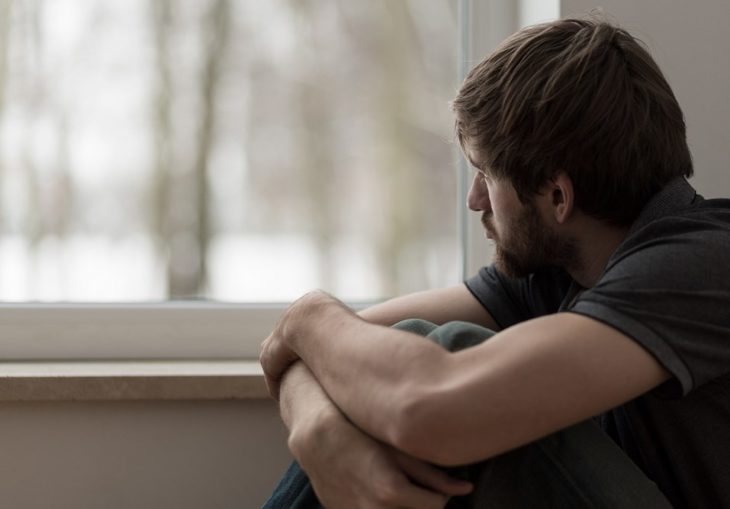
Source: TruthBehindTruth
I grew up in a family pickled by depression and substance abuse problems. My mother has depression and has taken medication for as long as I can remember. (Or not taken them, during particularly fun times.) My brother, who is four years older, has bipolar disorder and has been an alcoholic and drug addict since I was about 13. (He has been sober for the past year.) For these reasons and more, I didn’t have a particularly easy childhood or adolescence. But as I grew older and distanced myself from them, I felt like those were their problems and I, on the other hand, was winning at life. I graduated high school one year early with a 3.8 GPA. I got into NYU early decision. I had fantastic internships and I was offered a newspaper reporter job right out of college. Whenever I was worried about something school- or work-related, my mom would say, “I’m not worried about you.” Meaning, “you’ll be fine.” I learned not to worry about myself, even when I should have been quite worried.
It’s clear to me now that I started struggling with depression and anxiety in 8th grade. Around that time, my brother was put into rehab by my parents. I don’t want to use the word “neglected” because they obviously put a roof over my head and fed me. But they were so preoccupied with my brother and his medications and his arrests and his illegal drugs and his stint in prison that me and my GPA sort of fell by the wayside. There was always this sense that I was smart and a high-achiever, ergo my emotional life must be shipshape as well.
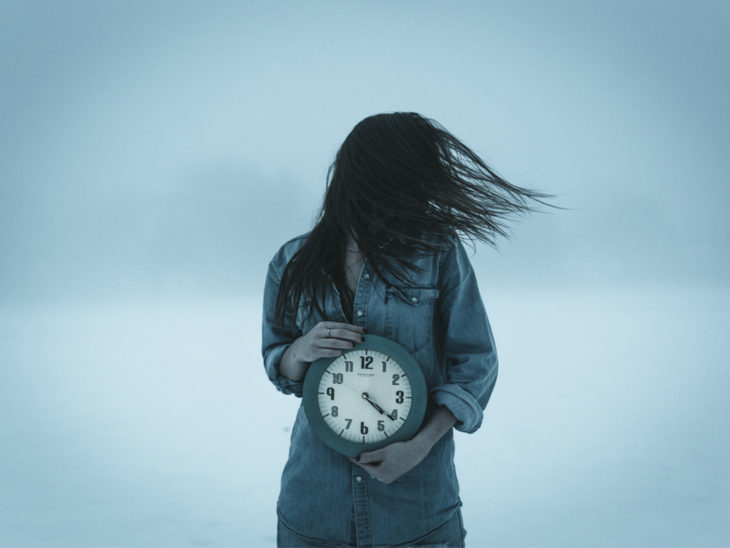
Source: Pinterest
That self-conception—not being like my brother—really pushed a lot of my struggles in the closet; I think that’s why it took a longer time for my needs to be addressed. I had my first panic attack watching “Psycho” in a movie theater when I was 13; then I had a panic attack in French class. Both times, I felt ashamed because I had no idea what was happening. During both 8th and 9th grade, there were periods of time when I would refuse to go to school; I’d lock myself in my bedroom under the covers moping all day. I think back to that now and I don’t understand why my parents or the therapist I was seeing didn’t see any warning signs. I have always been the the deep-in-thought type, I don’t think my parents and school ever worried about me. Personally, I think they just dismissed me as a “moody teenager.”
Things really got worse in college. People ask me all the time, “Did you like NYU?” and I honestly just want to tell them I wish I could do it all over again because I just spent a lot of time dealing with my own emotional crap. My freshman year was just a bad situation: not only was my roommate a complete and utter princess-bitch, but September 11th happened two weeks into the school year and it terrified me. I didn’t have a support system anymore, since my friends were still seniors in high school and I wasn’t even in the same state as my family. My parents were preoccupied with my brother anyway; he was in and out of prison, then in and out of detox, and then in and out of rehab. I just became this little tornado of bad feelings: This one time freshman year, I felt so angry at life that I cut my leg up with pair of scissors. I wrapped toilet paper around it and when it trailed down my pants leg, my roommate noticed. I told her it was just from my period.
Sophomore year—when I was 18—got immensely worse, culminating in what I think was my first real bout of depression. I just felt absolutely terrible — and terrible about myself — most of the time. I dated a boy who really cared about me, but I had no serious feelings for and when I was struggling with how to break up with him, I felt overcome with frustration and cut myself again. When I told him about the cutting, he started sobbing and made me promise never to do it again. (I haven’t, even though I used to feel tempted.) I did other dumb stuff, too: I drank since I was 16 and smoked pot since I was 17, but I didn’t do either too often because I was so busy with school. But as sophomore year of college wore on, I started drinking and getting stoned more to make myself feel better. I had one terrible, terrible, terrible evening at a dorm party where I got very stoned and drunk at the same time and started to feel like I was losing my mind. I made my friends leave the party and take me home because I was freaking out. I was having trouble sleeping and I had no appetite; I lost enough weight that in April of that year, my two best girl friends took me aside to find out what was going on.
I started seeing a therapist again the summer after sophomore year and decided to stop smoking pot. I actually had several straight great months: I was elected president of a feminism club at NYU, wrote an op-ed column for the school newspaper, and things seemed to be on the up-and-up. Then I studied abroad in Prague for my second semester of junior year and bottomed out: I regularly slept 10 to 12 hours a night and hardly ever socialized. It felt like my life was swinging from a pendulum of “feeling good” to “feeling bad,” just back and forth.
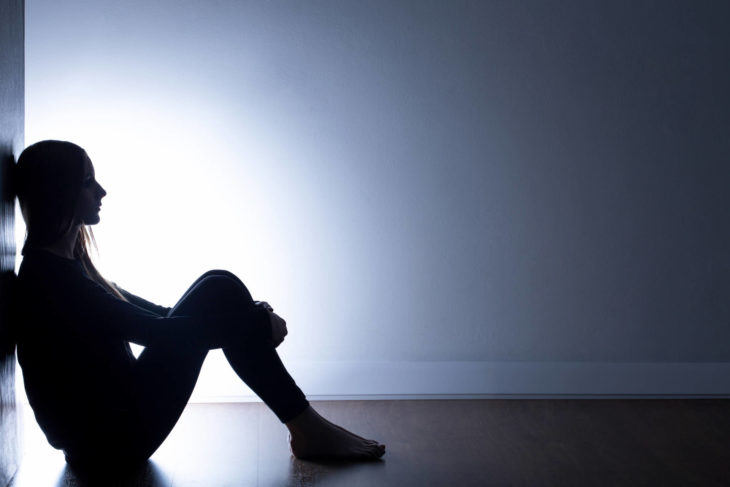
Source: KQED
My senior year seemed promising, though: I had lined up an internship at New York magazine and got an apartment in Brooklyn. But the summer before, I started having trouble breathing. I went to see a doctor—some fuddy-duddy old man my parents saw—who said my lungs were fine and told me to breathe into a bag if I felt anxious. I went off to college and tried to live my life … and then, randomly one night, I had a panic attack while watching a documentary about the Beatles. I thought my heart must have stopped; it was really one of the most terrible experiences of my life. The rest of the school year, I lived in fear that my throat would tighten up again and I wouldn’t be able to breathe; I even walked out of a bunch of classes when I started to panic. I had difficulty sleeping at night and I felt paranoid all the time.
It was not the way I wanted to be feeling senior year of college, when I had jobs to apply to and finals to study for. I hadn’t worked this hard to screw it all up now! My parents persuaded me to talk to a psychiatrist and because I was desperate, I went. A doctor from the NYU health services gave me a prescription for an anti-depressant called Lexapro, which absolutely helped me calm down and relax. Once again, my life became manageable. I felt happy and normal and had some good months again.
But then I did a bad thing: I stopped taking it after about six months.
I didn’t realize I was doing it, but throughout my life I had stigmatized mental illness. Even with my long history of depression and anxiety, I didn’t see myself as someone who needed help in the long term. When I got the scrip for Lexapro, I just saw it as the last resort. Eventually when I was feeling better, I stopped taking the pills. If I had a great job as a newspaper reporter and a boyfriend I cared for and a bustling social life, I definitely did not have a mental illness. Why should I take pills if I didn’t need them?, I reasoned.
I didn’t take anti-depressants for about three years in my early 20s. No doubt about it, these were some of the hardest years of my life. Even though over time I could tell my lows were steadily getting lower, I still judged how “well” I was by external barometers. I lived in an apartment on the Upper East Side, I was freelancing for publications like The New York Daily News, and I worked as a fact checker at Radar magazine and at The Huffington Post. If you just looked at my resume—which was the only thing I was looking at—everything was going well.
In reality, though, I was losing—and eventually lost—the capacity to feel joy. I remember when I published an article in a magazine called Bitch. I’d worked on this article for months; but when the magazine arrived in the mail, I felt nothing about it. Joy literally just eluded me as an emotion. I can also remember crying before meeting my friends to go out on my 24th birthday because I didn’t feel anything about going. That really scared me. I felt like I had two settings: “bad” and “apathy.”
The winter of 2007, I started seeing a therapist again. From the get-go, Dr. B correctly recognized that I was depressed. (She actually thought I might have bipolar disorder for a time, but eventually ruled that out because I don’t have manic highs.) She suggested medication, coupled with sessions, but I didn’t want to do the meds part. I had this idea in my head that suckling Big Pharma’s teat yet again would mean admitting defeat.

Source: Redbook
Well, if you had looked at me, you would have seen things got worse. I was a straight-up mess! Throughout spring and summer of 2007, I’d come home and lie in bed for hours, staring blankly at the wall. I stopped buying groceries, so I had no food in the fridge, and just bought all my meals out. I didn’t bother to put away my laundry and just slept on clean piles of laundry on my bed. I didn’t bathe too much—why bother? I pretty much stopped going out entirely, except to work. Work felt unbearably long and tedious, even though I’d once loved it. My boss took me aside to say he saw that my concentration at work was slipping—it was pretty much the first time in my life, ever, that a boss said I wasn’t doing a good job.
That was a hard time. I don’t like thinking about the dark places that my mind went then, but to be completely honest, I used to feel so terribly in pain that I wanted to die. I never seriously wanted to go through the motions to kill myself, exactly—and I never tried—but during that time, I’d consider how it seemed the only way I could stop feeling like s**t would be if I were dead. The hopelessness that I felt about being able to get through another month, let alone a day, was all-consuming.
But still, I did nothing. I knew I was struggling more than I should have been struggling, but I was ashamed to admit it. I had also grown up seeing my mom and brother manage and mismanage their depression and I wanted none of that. I want to protect their privacy, but suffice it to say I was refusing to acknowledge in my head that I had anything at all in common with them and their problems. When I was in this state of denial and non-acceptance, Mom would say to me that I just had a chemical imbalance and I could take medication for it. But I was stuck on the word “imbalance”—really, I was stuck on the “im-” part. I didn’t want to not be “balanced.” Other people were like that, but not me. My mind was clean, nothing wrong with it, and nothing would inhibit me. I could control all of this.
Besides, it’s easy to make excuses. So many of the symptoms of depression, in isolation, are just normal facts of life; when I thought about the way I was feeling, I would exploit that fact in my own head. I’d tell myself that I should be able to deal with XYZ symptoms just like everyone else does. All human beings inevitably feel worthless sometimes, right? Everyone feels a lack of energy now and then? Of course I feel helpless sometimes. Life is hard.
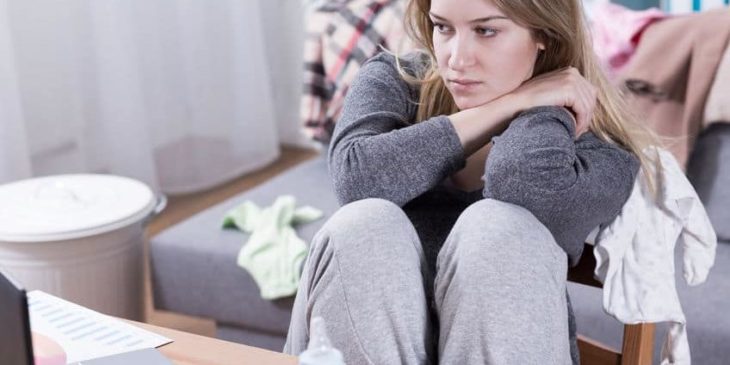
Source: Shutterstock
I basically had to hit my version of “rock bottom” before I made the radical decision to take care of my mental health. It was August of 2008 and one Friday after work, I just felt so much despair about my life that I started crying. I cried most of Friday night and then most of Saturday morning. I called my mom and we talked. I went out that night to a birthday party. Sunday morning again, I couldn’t shake the despair again. I cried all afternoon and called my mom again. By that point, she was really worried for me. Mom called my older sister and my older sister called me and asked me to please call in sick to work and go see a doctor the next day. Finally, I agreed.
Dr. L put me back on Lexapro and—after a little bit of time playing around with dosages—I’ve been taking it for two and a half years now.
These two and a half years have been the best of my life.
Taking care of my mental health has enabled me to make good decisions for myself, to stay in situations where I’m happy and to get out of situations where I’m unhappy. I started working at The Frisky and I love working here so much I can’t imagine working anywhere else—or wanting to. Last May, I met my boyfriend David and we fell in love in a big way. I started doing yoga, working out, being more serious about my diet, and saw my therapist regularly for a long time. (I’ve been meaning to find a new therapist in New Jersey, where David and I live.) For the most part these days, my day-to-day life is painfully—and blessedly—boring.
I’m expecting to live with bouts of depression the rest of my life, but now I know how to take care of myself. I can understand now why telling myself to “buck up” or “get over it” didn’t work. Depression is not like a skinned knee that you put a Band-Aid on and it soon goes away. And there isn’t a test for depression. It’s not like diabetes or a thyroid problem, where you can take a blood test that will tell a doctor something is off-balance. I have to know, David has to know, and my friends have to know what’s just me being my intense, deep self and what’s me cloistering myself in isolation. This past winter was hard for me, but I was fortunate enough to have David by my side this time and I was doubly fortunate to not dismiss my own bad feelings because “external” stuff, the “resumé,” was still looking good.
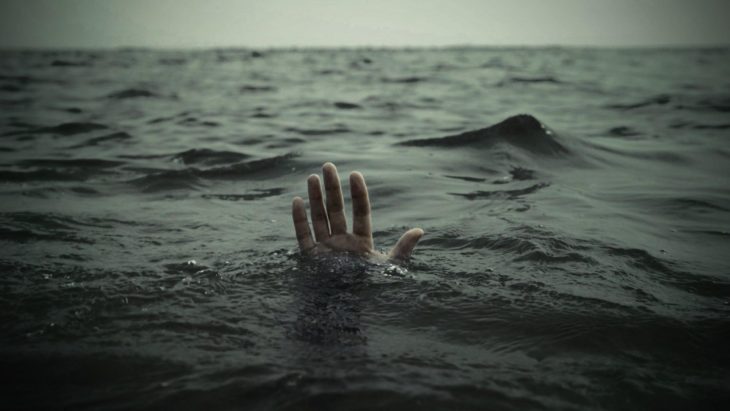
Source: Pinterest
I do regret that I didn’t take care of myself years earlier; I wish I could go back in time and change a lot of things. The only way you can change the past is with the future, though, right? It’s important that I’m honest with myself and others about what’s going on with me, so I’m not ashamed anymore. It took many years, but I’ve accepted the fact that I have depression. I’ve accepted the fact that I need to take a pill every day and talk to doctors. I’ve accepted that I have some bad days or bad weeks.
But now I have so much more faith that there’s the proverbial light at the end of the tunnel. Life is joyous and worth living.
Original by
